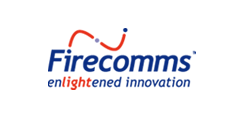DISPERSE Project Wins the 2020 Penta Award for Its Work on Enabling Mri Scans of Patients with Multiple Implants

DISPERSE, a project within the EUREKA PENTA cluster programme managed by Industry Association AENEAS, was today presented with an award for excellence during the EFECS 2020 online event. The award was accepted by the project leader, Mark Van Helvoort from Philips Medical Systems, on behalf of all 12 partners from the three countries involved in the project. DISPERSE set out to enable people with multiple medical implants to undergo Magnetic Resonance Imaging (MRI) scans. This is particularly important as the population ages, because many more patients both have multiple implants and require scans for conditions such as cancer, and neurodegenerative or musculoskeletal diseases.
Currently, patients with a modern implant may be scanned under specific conditions, which cause lengthy examination times. The challenge for the DISPERSE project participants was thus two-fold: firstly, to develop and test active implantable medical devices (AIMDs) while also enhancing the MRI scanner technology to increase compatibility with the AIMDs; and secondly, to find ways to reduce the examination time and improve the image quality for more accurate diagnosis.
These goals were successfully met within the project, and the project partners have also produced new guidelines for safe scanning of patients with AIMDs. Furthermore, the collaboration has helped to drive industry standards and facilitated cooperation between implant vendors and suppliers of MRI systems. As result, the project DISPERSE paves the way for benefits for society by enabling more patients to benefit from the diagnostic capabilities of MRIs and therapy with AIMDs by developing joint knowledge in this important area. Plus, it benefits the economy by boosting opportunities for relevant European healthcare businesses.
In addition to these main objectives, the project’s scope included addressing some related issues – in particular, monitoring of patient anxiety during MRI exams. The partners developed acoustic technologies based on multiple microphones that detect patient reactions and allow the operator to adjust the workflow accordingly.
Although developed in the context of MRI scans, these technologies also have wider potential, for instance, in acoustic monitoring for detection and surveillance systems in smart cities, smart homes and automotive applications. Indeed, DISPERSE has even led to technology to increase efficiency in radio astronomy communications, further illustrating the diversity of applications that can often be addressed within PENTA projects.

ABOUT THE DISPERSE PROJECT
DISPERSE is a RD&I project consortium involving 12 partners from 3 countries. The project partners are: Philips Medical Systems (project leader), Astron Netherlands Institute for Radio Astronomy, Cochlear Technology Centre Belgium, Firecomms Ltd, GTX Medical BV, KU Leuven, Luceda Photonics, MinDCet NV, Sorama BV, Sound Intelligence BV, Technobis Fibre Technologies BV, Tyndall National Institute. National funding support is provided by the Netherlands, Belgium, and Ireland.
- +1 Like
- Add to Favorites
Recommend
- Firecomms Signed a Distributor Agreement with Sekorm
- Firecomms Partner with Litho Circuits for the Development of Their Own Component Libraries in Order to Improve Customer Experience
- Firecomms Present Their Latest Technology and Products for Data Links over Plastic Optic Fiber (POF)
- Firecomms Present the Latest SMI Transceivers, A Smart Solution for EMI/EMC Isolation between Cabinets, Boxes, or Control Cards
- Wide-bandgap Power Converters with Easy-to-use Inverter Development Modules
- RCLEDs What are They and Why are They Important in an Industrial Data Link?
- A platform authorized by the world’s leading electromechanical components to provide rapid R&D and procurement services for motors/connectors/cables/batteries/PLC/displays
This document is provided by Sekorm Platform for VIP exclusive service. The copyright is owned by Sekorm. Without authorization, any medias, websites or individual are not allowed to reprint. When authorizing the reprint, the link of www.sekorm.com must be indicated.















































































































































































































































































































































































































































































































































































































































































































































































































































